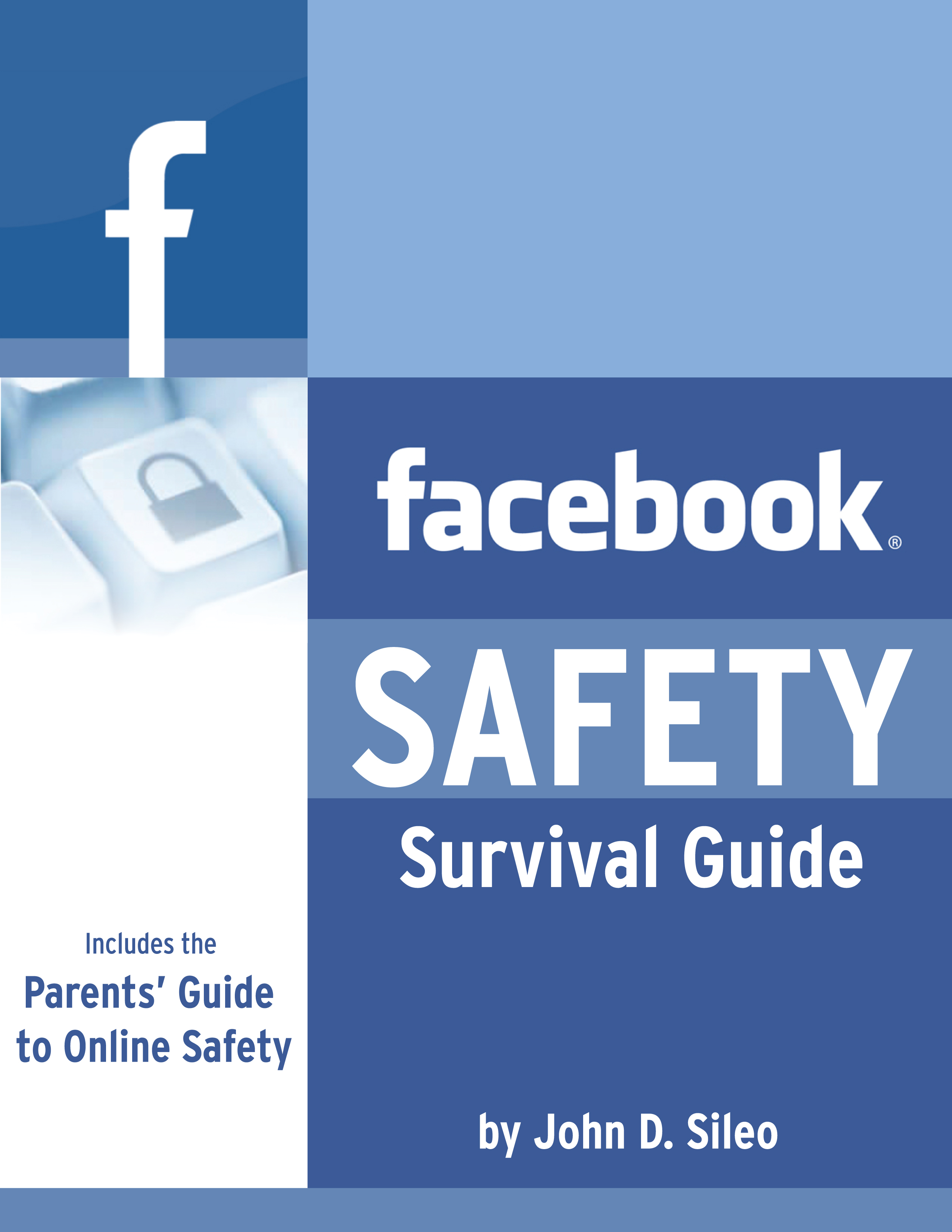Home | Solutions Blog | Social Networking Speaker
Posts tagged "Social Networking Speaker"
Yahoo.com just published the following article that every Facebook user should read. I recommend you follow each of these suggestions, and if you want to learn more, read my Facebook Safety Survival Guide.
6 Things You Should Never Reveal on Facebook
by Kathy Kristof
 The whole social networking phenomenon has millions of Americans sharing their photos, favorite songs and details about their class reunions on Facebook, MySpace, Twitter and dozens of similar sites. But there are a handful of personal details that you should never say if you don’t want criminals — cyber or otherwise — to rob you blind, according to Beth Givens, executive director of the Privacy Rights Clearing House.
The whole social networking phenomenon has millions of Americans sharing their photos, favorite songs and details about their class reunions on Facebook, MySpace, Twitter and dozens of similar sites. But there are a handful of personal details that you should never say if you don’t want criminals — cyber or otherwise — to rob you blind, according to Beth Givens, executive director of the Privacy Rights Clearing House.
The folks at Insure.com also say that ill-advised Facebook postings increasingly can get your insurance canceled or cause you to pay dramatically more for everything from auto to life insurance coverage. By now almost everybody knows that those drunken party photos could cost you a job, too.
Posted in Identity Theft Prevention, Online Privacy by Identity Theft Speaker John Sileo.
Tags: Facebook, Facebook Safety, identity theft expert, Identity Theft Prevention, John Sileo, social networking, Social Networking Speaker, Yahoo.com
According to a recent survey by the Internet Security Firm AVG, more than 8 out of 10 babies worldwide under the age of 2 have some sort of online presence. A staggering 92% of American babies have an online presence compared to 73% of babies in Western Europe. The study covered 2,200 mothers in the UK and eight other industrialized countries. With new technology and social media outlets such as Facebook, MySpace, and Twitter, mothers and fathers are eager to post photos and write about their children – even before the baby is born.
When these children become adults, it will be literally impossible for them to separate from their digital past. I can just see the photos and stories posted when they begin to run for office, try to find a job or meet a partner. Digital memory lasts forever, and it is very unforgiving. Those of us older than about 35 have had a chance to put our bad decisions behind us. Children born today will have every aspect of their life recorded, uploaded, backed up, forwarded and publicized completely without their consent.
Posted in Online Privacy by Identity Theft Speaker John Sileo.
Tags: Babies Online, children, Facebook, identity theft expert, Identity Theft Statistics, John Sileo, Online Behaviors, Online Safety, Online Statistics, Social Networking Speaker, Statistics
As a parent you are often worried about what your kids are being exposed to on the Internet. Apparently so are Facebook and the PTA. They have teamed up to teach parents and children about responsible Internet use. They plan to cover cyber-bullying, internet safety and security and “citizenship online,” according to a news release.
“Nothing is more important to us than the well-being of the people, especially the many teenagers, who use Facebook,” said Sheryl Sandberg, Facebook’s chief operating officer.
Facebook is the number one social media site with over 500 million users and a minimum age requirement of 13. Even that requirement can be easily fudged because Facebook has no way of verifying a user’s age besides asking for their birth date when they register. Parents are having trouble deciding whether to let their children join Facebook prematurely and what they should be cautious of if they do so.
Posted in Identity Theft Prevention, Online Privacy by Identity Theft Speaker John Sileo.
Tags: "Identity Theft, child safety, children, facbook, Facebook, facebook privacy, Facebook Safety, Financial Speaker, identity theft expert, Information Privacy, John Sileo, kids, online privacy, Online Safety, parents, parents help, Privacy, social networking, Social Networking Speaker, Speaker, surfing, teens
 Introducing the Newest Guide to Protect you & your family’s identity:
Introducing the Newest Guide to Protect you & your family’s identity:
Facebook Safety
Survival Guide
Includes the
Parents’ Guide to Online Safety
Order your copy Today to get our special introductory pricing of $12.95 or order the Ebook below for only $9.95 !

There is no final word on how to use Facebook safely. Here’s why: social networking and the web change too quickly. The social network you use today is not the same one you will use tomorrow or next month. The privacy settings, functionality, connectability and features are constantly evolving, which means that almost no one has a handle on every aspect of this topic. Those who tell you that they have the final answer are probably selling you something you shouldn’t buy.
Posted in Identity Theft Prevention, Online Privacy by Identity Theft Speaker John Sileo.
Tags: "Identity Theft, facbook, Facebook, facebook privacy, Facebook Safety, Financial Speaker, identity theft expert, Information Privacy, John Sileo, online privacy, Online Safety, parents, parents help, Privacy, social networking, Social Networking Speaker, Speaker, teens
Steve Jobs unveiled Apple’s new iPhone 4 on June 7 in San Francisco. While the new features keep the iPhone at the forefront of technology, they also cause some privacy concerns.
One concern that carries over from previous iPhone models is the Always-on iPhone Apps that track your every move through the GPS navigation system. Back in April, Apple began allowing location-tracking applications to run in the background. So, for example, companies like FourSquare, Yelp, and Facebook can continuously track your location, providing automatic notifications to your friends when you are less than 1/2 mile away from them, if you allow them.
Posted in Fraud Detection & Prevention, Identity Theft Prevention by Identity Theft Speaker John Sileo.
Tags: Apple, Data Breach, identity theft expert, Information Privacy, iphone 4, John Sileo, Privacy, Social Networking Speaker, Steve Jobs
Facebook has announced a new security feature that focuses on keeping users’ information safe from hackers attempting to gain access into your account.
The feature was announced last Thursday, and is similar to how secured banking sites work — they only let you access the site from approved computers. If you are attempting to log onto your Facebook account from an unknown computer, device, or location, Facebook will notify you via email and lock down your account in case it is under attack. To regain access, you will have to follow the link in the email which will lead you through a security check to verify your identity. They will ask you a few security questions and have you acknowledge that it was in fact YOU (or if it wasn’t you, then you notify Facebook at this point) trying to access your account.
Posted in Identity Theft Prevention, Online Privacy by Identity Theft Speaker John Sileo.
Tags: CNN, Facebook, identity theft expert, Information Control, John Sileo, Privacy, Social Networking Speaker
Young job-seekers are hiding their Facebook pages.
In today’s economic climate, more and more individuals are searching for jobs. Many job-seekers are just beginning to realize that managers looking to hire them can easily Google their name to find Facebook profiles, tweet history and vast quantities of online information that they would probably rather keep a bit more private. This is even more prevalent with recent college graduates who are entering the job market for the first time. With tough competition from so many qualified candidates, employers are turning to Facebook to help them sift through resumes. While some profiles are innocent, many have pictures, posts, and more that could possibly disqualify them from getting a job before they even walk into the interview. A new article by CNN discusses how more and more job-seekers are choosing to hide their Facebook profiles by changing their names (assuming an Alias, in spy terms) in order to keep a clean digital image of themselves on the web.
Posted in Identity Theft Prevention, Online Privacy by Identity Theft Speaker John Sileo.
Tags: Facebook, Facebook Expert, facebook privacy, John Sileo, Privacy, Privacy Facebook, safety, social networking, Social Networking Speaker

Statistics can be dry but these figures could prompt you to zealously guard your most valuable asset, your identity. According to Javelin Strategy and Research, Identity Fraud continues to rise, but mean customer costs and resolution time have decreased. In their latest 2010 Identity Fraud Survey Report they found that Identity fraud has risen to 11.1 MILLION US victims, which is up 12% from 9.9 MILLION in 2008. That is a significant climb.
4.81 % of the US population is a victim of Identity Fraud.
The total fraud amount in 2009 reached 54 BILLION dollars, which is up from 48 BILLION dollars in 2008.
Consumers who monitor their accounts electronically have shorter detection times and their consumer costs are over 50% less.
Social Security Number thefts remain the top breached data and one of the most difficult frauds to detect.
Posted in Identity Theft Prevention by Identity Theft Speaker John Sileo.
Tags: Identity Fraud, identity theft expert, Identity Theft Statistics, John Sileo, social networking, Social Networking Speaker
 What started in 1997 as a research project and a mission as the way to organize the world’s information has turned into the worlds largest search engine. Google has given anyone with an Internet connection access to more information than they realize. With such quick access to information, you need to be careful what you put on the World Wide Web and realize what is contained in your Google History. Remember, posts – and searches – are permanent. Here are a few privacy issues when it comes to Google:
What started in 1997 as a research project and a mission as the way to organize the world’s information has turned into the worlds largest search engine. Google has given anyone with an Internet connection access to more information than they realize. With such quick access to information, you need to be careful what you put on the World Wide Web and realize what is contained in your Google History. Remember, posts – and searches – are permanent. Here are a few privacy issues when it comes to Google:
1. Google’s Cookie and Toolbar. When you use their search engine, Google places a self-renewing cookie with a unique ID number on your hard disk. As you search websites, Google records your surfing activity and saves your searches. There are ways to change your Internet options to stop the cookie tracking and you can learn more by visiting www.google.com/support/accounts/.Remember, nothing you do on the Internet is private; it is all tracked, aggregated, analyzed, sold and used for a variety of purposes (many of them good). The advanced features of Google’s new toolbar for Internet Explorer not only updates automatically, but it also tracks which websites you visit.
Posted in Identity Theft Prevention by Identity Theft Speaker John Sileo.
Tags: Google History, Google Privacy, John Sileo, John Sileo Identity theft Expert, social engineering, Social Networking Speaker
 The whole social networking phenomenon has millions of Americans sharing their photos, favorite songs and details about their class reunions on Facebook, MySpace, Twitter and dozens of similar sites. But there are a handful of personal details that you should never say if you don’t want criminals — cyber or otherwise — to rob you blind, according to Beth Givens, executive director of the Privacy Rights Clearing House.
The whole social networking phenomenon has millions of Americans sharing their photos, favorite songs and details about their class reunions on Facebook, MySpace, Twitter and dozens of similar sites. But there are a handful of personal details that you should never say if you don’t want criminals — cyber or otherwise — to rob you blind, according to Beth Givens, executive director of the Privacy Rights Clearing House.






 What started in 1997 as a research project and a mission as the way to organize the world’s information has turned into the worlds largest search engine. Google has given anyone with an Internet connection access to more information than they realize. With such quick access to information, you need to be careful what you put on the World Wide Web and realize what is contained in your Google History. Remember, posts – and searches – are permanent. Here are a few privacy issues when it comes to Google:
What started in 1997 as a research project and a mission as the way to organize the world’s information has turned into the worlds largest search engine. Google has given anyone with an Internet connection access to more information than they realize. With such quick access to information, you need to be careful what you put on the World Wide Web and realize what is contained in your Google History. Remember, posts – and searches – are permanent. Here are a few privacy issues when it comes to Google:







